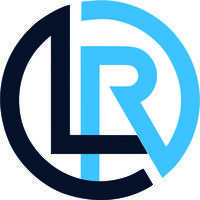Solana: The Best Coding Language for Writing Solana Code
As a new developer looking to dive into the world of Solana, you’re likely wondering which programming language to choose for writing code on the blockchain. In this article, we’ll break down the best coding languages used in the Solana ecosystem and help you decide which one is right for your project.
JavaScript: The Language of Choice
One popular choice among developers building applications on the Solana chain is JavaScript. Many developers already familiar with JavaScript find it easy to learn and integrate into their existing workflow, making it an excellent choice for writing code on Solana.
- Easy to Learn: JavaScript is a versatile language that’s widely used in web development, mobile app development, and server-side programming. Its syntax is simple, and most developers can pick up the basics quickly.
- Cross-Platform: JavaScript can be executed on multiple platforms, including web browsers, Node.js, and browser-based applications.
- Community Support

: The Solana ecosystem has a thriving community of developers who contribute to libraries, frameworks, and tools for building Solana applications.
However, using JavaScript for Solana code may not be the most efficient choice. Here are some potential drawbacks:
- Performance Overhead: JavaScript is an interpreted language, which means it can introduce performance overhead when executed on the blockchain.
- Limited Performance: While JavaScript is generally fast, it still lags behind languages like Rust and C++ in terms of raw performance.
Anchor: A Growing Alternative
Another popular choice among developers building applications on Solana is Anchor. Anchor is an open-source project that provides a suite of tools for building decentralized applications (dApps) on the blockchain.
- Efficient: Anchor is built using Rust, which is designed to provide high performance and efficiency.
- Native Interoperability: Anchor allows developers to call native JavaScript functions from Rust code, enabling seamless interaction between Solana and other ecosystems.
- Community Support: The Anchor community is growing rapidly, with a strong focus on building scalable and efficient dApps.
However, using Anchor for Solana code may also have some drawbacks:
- Steep Learning Curve: While Anchor is built on top of Rust, it still requires knowledge of Rust programming language.
- Limited Integration
: Anchor’s focus is on providing tools for building dApps, which may limit its capabilities compared to more comprehensive blockchain platforms like Solana.
Rust: The Performance Champion
For developers seeking high-performance code on Solana, Rust is an excellent choice. Rust is a systems programming language that prioritizes performance and security.
- Native Compilation: Rust code can be compiled directly into native machine code, providing exceptional performance.
- Memory Safety: Rust’s ownership model ensures memory safety, which helps prevent common errors like null pointer dereferences.
- Growing Community: The Rust ecosystem is rapidly growing, with a large and active community of developers contributing to libraries, frameworks, and tools.
However, using Rust for Solana code may also have some drawbacks:
- Steep Learning Curve: Rust has a unique syntax and requires knowledge of programming concepts like ownership and borrowing.
- Limited Interoperability: While Rust is designed to work seamlessly with other languages, its focus on systems programming means it may not provide the same level of interoperability as JavaScript or Anchor.
Conclusion
The best coding language for writing Solana code depends on your specific needs and goals.


